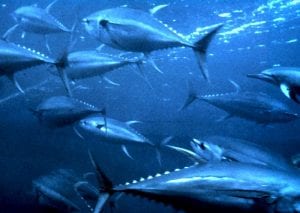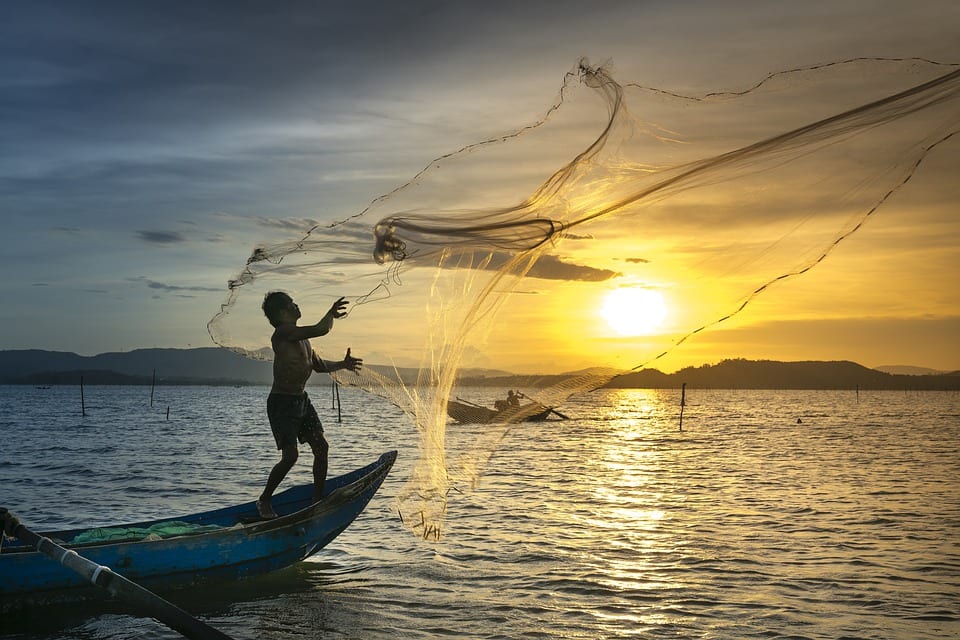Grandma always used to say there’s other fish in the sea, but the way we’re abusing the oceans, it’s going to take years to recover.
For many, life is all about choices. If one doesn’t work out, go with something else that will. “There’s other fish in the sea,” say the people who believe there’s an unlimited array of options out there. Therein lies the problem. The modern ideal of overflowing marketplaces filled to the gills with resources so cheap that wasting them is an affordable luxury is what’s finally going to do itself in.
In Britain, fish and chips are iconic. The pairing was once considered poverty food, since both potatoes and cod were plentiful and so inexpensive that almost everyone could afford to eat them, served doused in vinegar and wrapped in newspaper by street vendors. Potatoes may still be common, but North Sea cod stocks have fallen 31% since 2015, and independent auditors are considering whether or not the fisheries there can still be considered “sustainable” by the standards of the Marine Stewardship Council. If not, North Sea cod would not be sold in stores. Cod fisheries almost collapsed between the 1970s and 2000s, but recovered due to conservation practices like limited fishing and nets with wider holes so young fish could escape. Can we find the will to rescue cod again, or will jobs and hungry people be considered more important than keeping fish in the sea?
City people, at least, are winning in Louisiana, but at the cost of Mississippi’s seafood industry. The massive Midwestern floodwaters that prevented farmers from planting this spring eventually made their way down the Mississippi River. To save New Orleans from devastating floods, the Bonnet Carré Spillway emergency release valve opened and sent that vast volume of fresh water straight out into the briny Mississippi Sound, killing off the area’s farmed oysters and brown shrimp, not to mention other saltwater-dependent wildlife. For consumers, there may be other fish in the sea, but a tough year for producers could put them out of business permanently.

It’s not just the North Atlantic and the Gulf of Mexico, either. Fisheries are dwindling around the world, pushed to the brink by overfishing, wasteful practices, new technology, and climate chaos. Some governments, such as China and the EU, subsidize fleets in ways that encourage overfishing, a practice the World Trade Organization wants to end. Technological advances allowed commercial fleets to double capacity every 35 years, diminishing stocks faster than they recover. Attempts to regulate fishing often mean that fishermen toss dead and dying overlimit, wrong size, or non-target species of fish in the sea again so as to not surpass their quota, which is counterproductive. A quarter of the catch is obtained by bottom trawling, which disturbs marine life in ways that can take six years to recover. Finally, the modern “efficient” food system wastes about 35% of the catch between fleet and plate, about 46 million tons annually.
With 10% of the world’s population depending upon fisheries for their livelihoods, and billions of people relying upon the ocean for at least part of their protein intake, we’re facing a serious problem. Yet how do we step back from overfishing long enough to let fish stocks recover, when people need to eat and make a living today? It’s an impossible problem, yet we must find some way to solve it, lest yesterday’s prosperity and today’s need form the basis of tomorrow’s collapse. After all, the way we’re wiping out the fish in the sea, the ocean ecosystem could take two million years to recover. That’s a long wait for some fish ‘n chips.
Related: False Fish Flops as Food Fraud


Join the conversation!